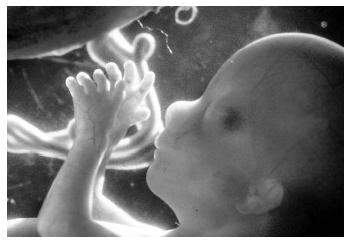Doctors and expectant-mothers are well-warned about the dangers of alcohol and nicotine consumption during pregnancy. This awareness has dramatically reduced fetal damage, but there is another substance even more frequently consumed that has escaped full scrutiny: caffeine. Finally, a study published this month in the British Medical Journal delineates the effects of varying levels of caffeine on the growth of a fetus.
Caffeine crosses the placenta easily and can quickly reduce intervillous blood flow, a fact that brought lead researcher Dr. Justin Konje to suspect that it might have a serious impact on fetal growth. Dr. Konje followed 2,635 women through their first three months of pregnancy, having them regularly record caffeine consumption. Then he separated the groups into those who consumed less than 99mg/day, 100-199 mg/day, 200-299 mg/day, and more than 300 mg/day.
The risk of fetal growth impairment rose along with consumption. Perhaps even more important was the finding that there is still a significant risk for women consuming between 100-199 mg/day, which is the seemingly benign level that can be reached by just one cup of strong coffee. Children born to mothers in this consumption group had a 20% higher chance of suffering impaired growth.
This study adds another chemical to the list of potential dangers to avoid during pregnancy. Even moderate levels of caffeine consumption raise the risk of growth impairment, so women should keep track of what they are eating and drinking. Besides the notorious caffeine vehicles like coffee and soda, there are many other tempting foods like chocolate and apple that contain caffeine.
